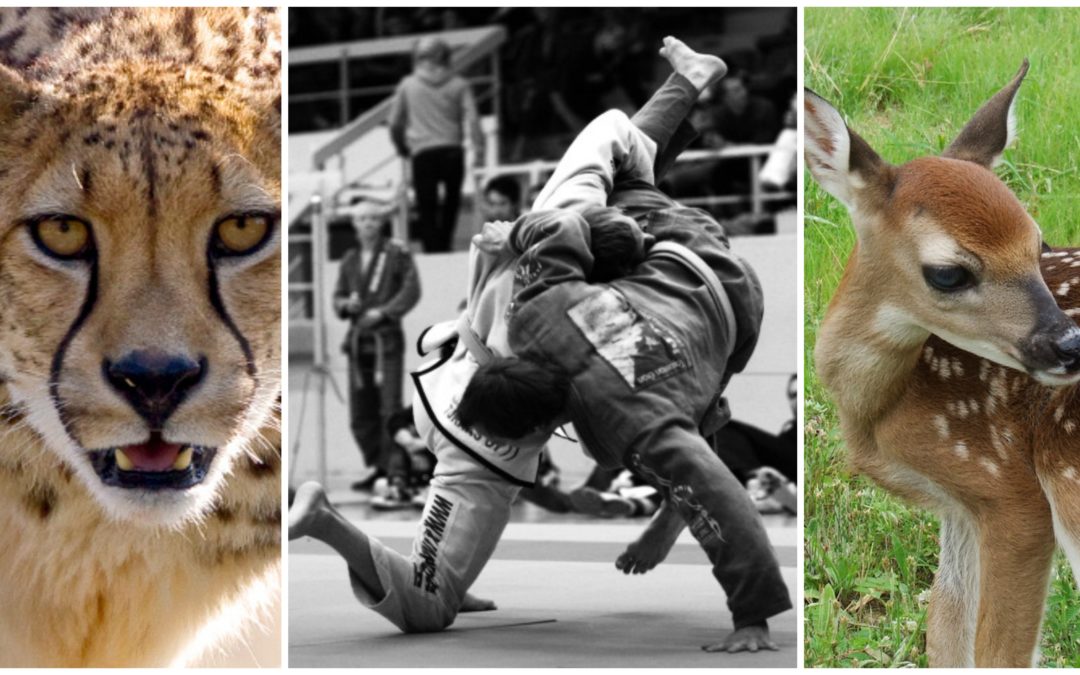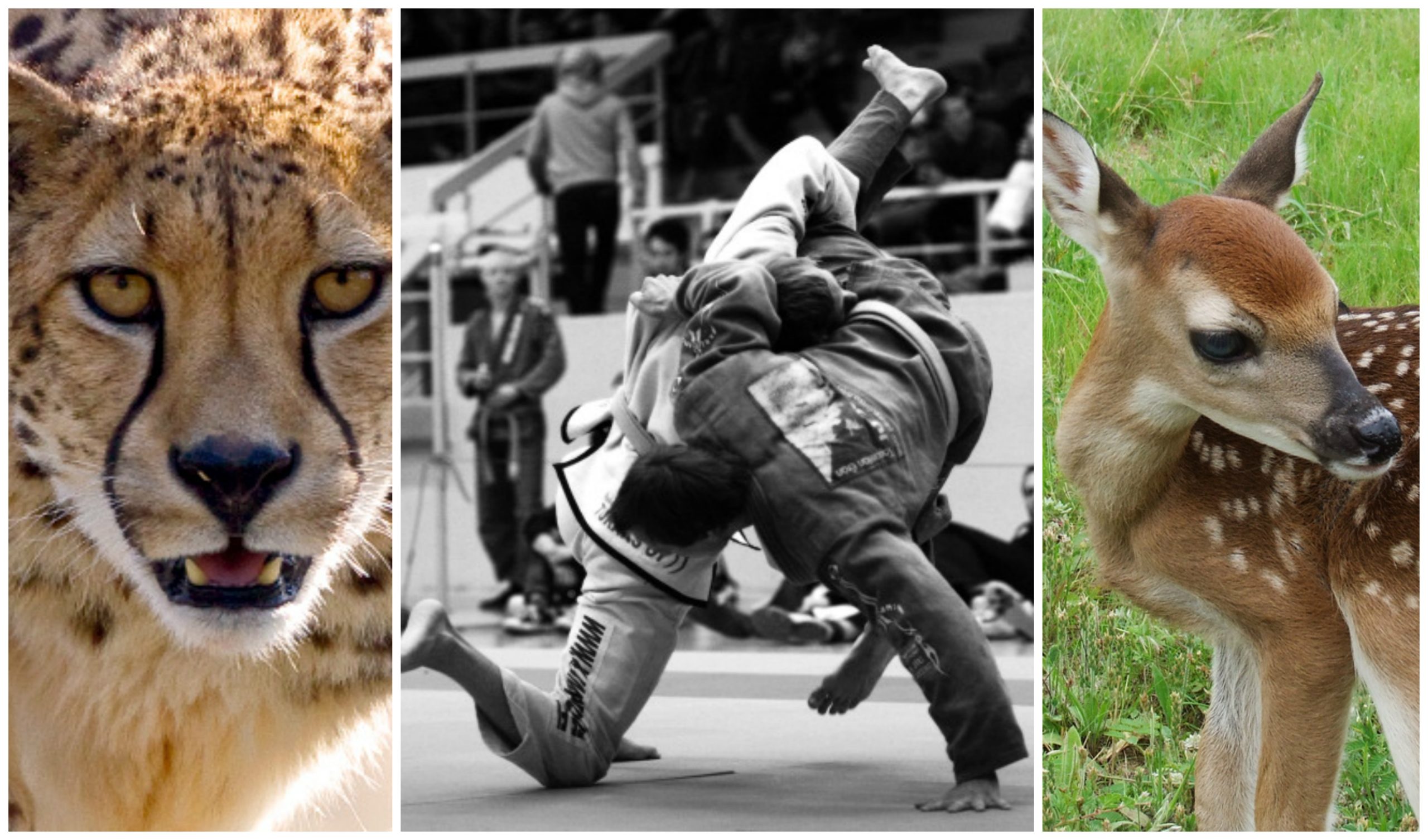I listened to a Wrestling Mindset podcast on the Predator vs Prey mentality. It said that predators have eyes in front of their bodies because they need to focus on attacking their prey. Prey animals have their eyes on the sides of their heads so they can watch out for what’s coming at them and avoid getting eaten. The podcast applies this concept to wrestling styles – wrestlers with a killer instinct to attack versus wrestlers that play defensively waiting to counter their opponent’s move. What does this have to do with Brazilian Jiu Jitsu? The podcast had lots of good advice, but it relates specifically to a topic that has come up often when watching competitor styles at the IBJJF Worlds, Pans, and Regional Opens.
In Brazilian Jiu Jitsu, we have attack-style submission hunters in competition. Their eyes are wide and focused on their opponent. They think solely about getting to their best position and executing their best moves leading to their most successful submissions. They adapt to the situation and have a counter action that is one step ahead of their opponent’s reaction. They are the type of competitor that never gives up and keeps fighting until time runs out. When there is 30 second on the clock and they are up by points, they are still furiously trying to get the submission.
On the flip side, there are defensive prey competitors. Their goal in the match is to put a stop to the other players attack and slow down movement, even stalling the flow of a match into a set position. They are adept at countering the attacks by the other player and capitalize on the mistakes of the attacker, which can lead into dominant positions and transition submissions. This type of competitor shies away from the uncertainty of fast paced matches. They are the competitor that when they are up by an advantage half way through the match, they stall out in one position for the duration of the clock. They often get stalling calls by the ref.
Sure, everyone has stalled out a match with 20 seconds left to go before, either from exhaustion of a fast-paced match or because they two opponents were evenly matched any mistake could turn the tables. We see this at the black belt level. Take Leandro Lo—he’s known for his unpredictable movement and explosive guard passing—he too will hold a position in the last few seconds of a match. When the stakes are high at the black belt level and matches are usually won only by one score of two points or a mere advantage, any error in movement can be taken advantage of by an opponent.
I bring this topic up as it demonstrates a competitor’s character. Are you a predator that hunts for submissions and attacks at every moment? Or are you a defensive player that restricts movement and stalls out the end of every match? I’ve heard one theory on how to win the World Championships and other grand slam tournaments, that is through getting a cheap score and sneaking by each match to the finals. It is true, champions by medal count have been made this way. But no one remembers these matches and legends are not born through the prey mentality. I’ve watched many great defensive players as well, with remarkable control and precision. They’ve even frustrated our best competitors. It also has a place in competition skill development as it teaches our attack-style competitors how to get better by beating the stallers. They learn above all that their attack skills need to be that much more sharpened.
This mentality is evident in practice as well. Some teammates will get a dominant position and hold it there on a lower belt for an entire round. Other teammates will attack and repeat a submission over and over with a lower belt to constantly refine a set of techniques or learn new ones.
You can’t control every aspect of a match. You can’t control what your opponent will do. You can’t control a referee’s decision. What you can control is your effort. You can control your actions in a match and how you choose to play the game. To get better at Jiu Jitsu, you have to actively attempt moves and transitions. The more repetitions, the more polished you become.

